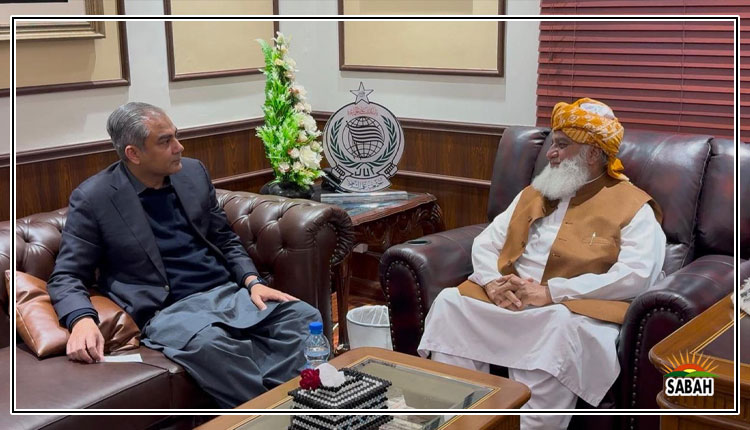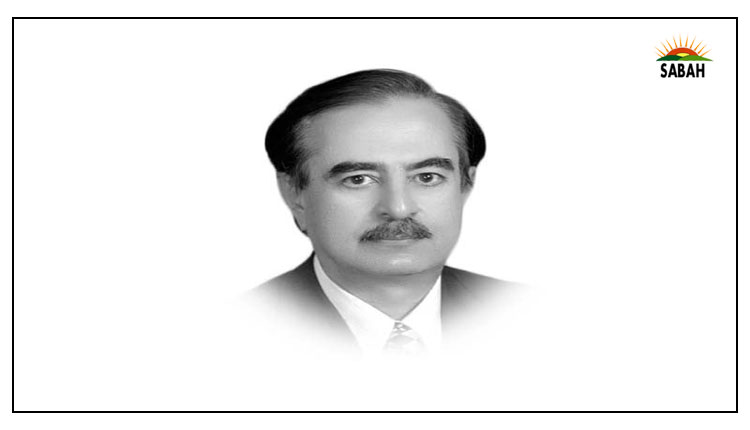Private gain and public good; illegality and immorality…Sahibzada Riaz Noor
We decry widespread presence of corruption. Evasion of taxes, utility bills and other public levies are excoriated, yet tolerated. Our consciences sleep undisturbed getting a contract or job undeservedly or unmeritoriously.
The issue boils down to this: a sharp segregation exists between private gain and public good. In fact the two appear mutually antagonistic: public good may diminish private gain. We are perfectly at ease self-moralising justifications discounting pubic benefit over individual profit.
How does this self-righteousness play out? The argument goes: We cant compete in a world where others are cutting edges. We justify shady deals: You cant do business if you dont follow the acceptable double standards in morality.
Where people avoid taxes which pay for security and public services, merit-based upward mobility seriously suffers, government cannot be made responsive or accountable to voters or public needs.
Gifts are not bribes, claims the chai pani (graft) sophist. Im doing a favour not bribing goes the refrain. Isnt doing favours all right? they rationalise.
Taking upon the illuminating study of the Pakistan elites by Rosyta Armitage (Big Capital In An Unequal World, 2020) one may posit that it is possible to be izzatmand (honourable) and yet not be averse to tax avoidance, giving bribes for undue advantages like obtaining contracts/ licences, loan waivers, tax avoidance, land allotment, etc. One can be upright and yet escape from being badnam (irreputable) by resorting to charity and observance of religious obligations.
Men of power or influence, the wealthy elite of the world, are adept at capitalising on wide opportunities in negotiating the large, publicly perceived gap between illegality and immorality, particularly in countries where the regulatory institutions are weak and ineffectual.
If one is a businessman, a stock broker, a bureaucrat or even an officer belonging to the forces, or any other person who comes into contact with state power to seek government permissions, jobs or plots or come within the purview of government regulatory restraints, we would not ordinarily be averse to purchasing stocks or other assets in the name of a benami to circumvent laws or to get an undue favour.
An undeserved benefit means an advantage accessed not on the basis of legal entitlement, in an open, competitive and transparent setting, or on the basis of merit, but through connections to men of influence or through other deviant means.
We justify such a transaction in some such manner: I stand to make a proper, moral gain in terms of accretion to my wealth which may increase my private capacity for charity or other morally worthy causes or endowments. Secondly, I am not directly causing any financial loss to anyone or depriving any person from his or her chances of obtaining similar or even better advantages.
Only lastly will such a consideration enter our mental or moral calculations that we are not acting legally but are in violation of public duties or that we are reducing the capacity of the state to deliver improved public services. Our private standards of morality trump our attitude towards public morality or legality.
Our circular apologia continues: Public good through taxation and provision of state services like education, health, etc do not suffer as, 1stly, the government doesnt have a moral right to claim charging me; 2ndly, it is in any case corrupt and wasteful; and lastly, the services it provides are poor.
Divergence between private morality and public legality is also amenable to being izzatmand while not appearing badnam by opportunities of explaining away that observance of religious or family duties or charity absolve me of my duties as a citizen of a responsible, legal state.
In a way conforming to saying regular prayers, fasting or going for Umra or Haj place me above or at a different plane from observing my legal duties to pay my taxes or fees or other government charges.
In a perverse way our apparent religiosity spares us, or even justifies us, in not heeding to our public duties or payment of the justified opportunity cost to society of use of public assets. We assume a higher, sanctified, more honourable status in not submitting to the demands of an immoral, inefficient and corrupt government or state. We have, we satisfy ourselves, a licence for avoidance of taxes since we contribute to charity: not much different from the Catholic church ritual of indulgences! Paradoxically, rozas, umra, haj or prayers are used to provide succor to personal qualms of conscience. Our souls remain at peace!
Charity, endowments and philanthropy are laudable practices preached by all religions yet in more cases than few the inordinately rich, who have made a buck by cutting corners, philanthropy and endowments become a false front to sanctify private chicaneries.
Price cutting, market allocations and output restrictions under cartelisation, oligopoly and monopoly are common practices indulged, with the regulators looking the other way, to the detriment of consumers as well as labor wages.
How does this dichotomy between private morality and public legal duty translate from the individual to the societal and political planes?
In an uncertain and sharply polarised political environment like ours, with powerful stakeholders like the establishment, judiciary and the dominant political parties, in absence of policy continuities and regular peaceful change of power, safe and continued business suffers from sharp precarity.
Due to political unpredictability, business operates under constant threat of use of overpowering force by a new dispensation to cause irreparable financial loss or diminution of status, prestige, influence or power. Such an environment is inimical to both playing by the book or promotion of investments, hamstringing economic growth.
The Gramscian concept of a dominant narrative or the hegemony of consent explains how ideas in a capitalist society about what is justified sharing of power, resources and opportunity emanate and persist.
This manipulated, ostensibly proper way of how the world operates is often unquestionably accepted by the unreflecting masses. This results from control by the hegemonic elite over means of creation of an ideology through education, workplace, press, TV, social media and other means of socialisation or propaganda, opinions that are continually consolidated, justifying the prevalent system of resource sharing, access or opportunity. That is why it is so difficult to counter or change the narrative which the elite construct justifying private gain over public benefit.
Courtesy The Express Tribune












